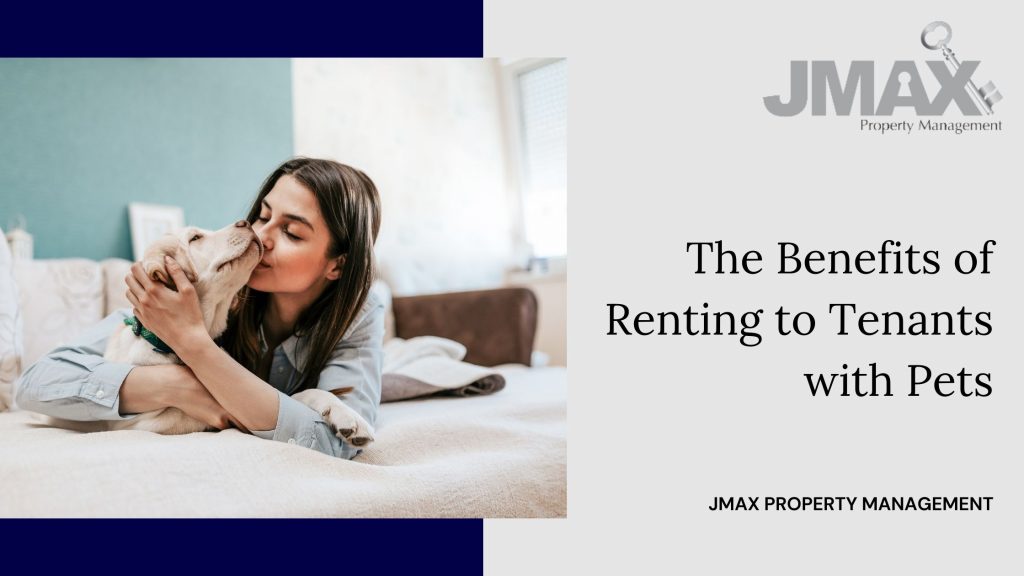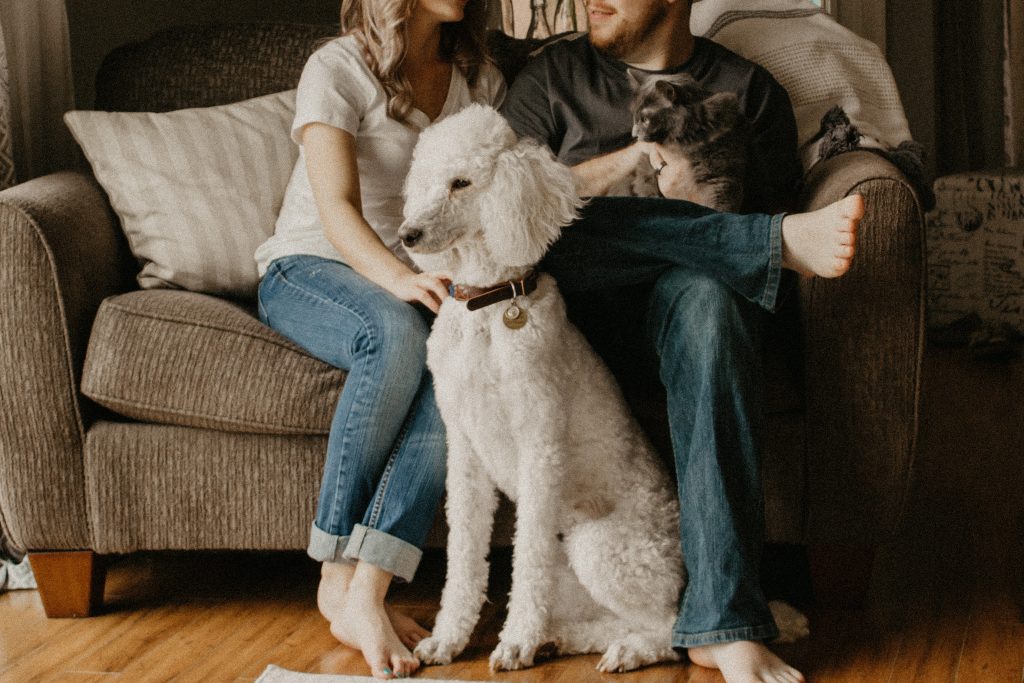
Accepting pets in your rental property can be a great financial decision. Many property owners immediately refuse the idea of allowing pets in their rental because of the risks that come with that decision. However, there are many benefits of renting to pet owners that may outweigh the drawbacks. Not to mention, there are things you can do to minimize the risks.
In this post, we are going over the pros and cons of owning a pet-friendly rental property.
Benefits of Welcoming Pets in your Property
There are many upsides of being a pet-friendly rental that you can enjoy.
Here are a few:
1. Larger Pool of Prospective Tenants
Many Americans own a pet. According to one study, approximately 68% of households care for a pet. This means that if you don’t welcome pets, you lose a good percentage of prospects. In turn, you may suffer from an unoccupied unit for a longer period of time.
2. Potentially More Responsible Tenants
If you own a pet, you must have some level of responsibility. Therefore, you can expect that tenants with pets will show the same responsibility when caring for and maintaining your rental unit. These kinds of renters will want to make the environment clean and habitable for themselves and their pets.

3. Increased Chance of Lease Renewal
Since not as many rentals accommodate pet owners, tenants with pets are known to rent long-term. Going through a pet screening can be a rigorous experience. It can also be stressful to keep moving around and disturb a pet’s sense of familiarity in an environment. Thus, pet owners often opt to renew their leases.
Risks of Welcoming Pets in your Property
Of course, there are also disadvantages of allowing pets in your rental property.
Some of the disadvantages include:
1. More Noise/Disruptions
Noise can be disturbing to neighboring tenants. Dogs who bark regularly, especially at night, can cause a lot of complaints and conflicts.
2. Increased Likelihood of Injuries
Some pets can be aggressive. You want to avoid dealing with dog bites. It’s recommended to request renters’ insurance in case injuries happen.
3. Allergies can Spread
Pets who shed a lot, such as dogs and cats, can carry allergens. Some tenants can be sensitive to allergens. It’s advisable to let all tenants know beforehand that your rental accommodates pets.
4. Property Damage is Possible
Dogs and cats can potentially cause property damage. They can chew wires, dig up the garden, scratch doors and floors, chew carpets and more!
Not to mention, they may also have an unpleasant odor.

Screening Tenants with Pets & Setting Conditions
If you decide to accept tenants with pets, it’s important to screen the pets and set conditions in order to minimize the risks.
Pet conditions can include the following:
- Pet Size Restriction: You may place limits on pet size.
- Number of Pets: If you have a smaller property size, you might want to rethink the number of pets you allow per tenant. However, if you’re renting a single-family home with a huge yard and few neighbors, then you’ll have less problems with noise, allergens and injuries. So, you can potentially accept more.
- Dog Breed Restriction: Some dog breeds can attack aggressively. So, you may not want certain breeds in your rental unit.
Here are some appropriate screening questions for tenants with pets:
- How well-trained is your pet?
- What’s the size and breed of your pet?
- How long have you been taking care of your pet?
- Are there other caretakers of your pet?
- How does the pet deal with strangers, kids and other animals?
- How many pets do you have?
- How old is your pet?
- Which vaccines has your pet received?
- Can you mention an incident where your pet has shown aggression towards other people or other animals?
The more you know about a pet’s personality, behavior, and training, the more you’ll feel confident in your decision to welcome them in your rental.
Signs of a Responsible Pet Owner
These are the signs of a responsible pet owner:
- The tenant has a well-trained pet.
- The tenant is very hands-on with taking care of the pet and displays a sense of responsibility and care.
- The tenant is firm in managing their pet and adheres to pet rules.
- The tenant possesses the pet essentials, such as a leash, collar, treats and toys.
After meeting the tenant and screening the pet without issue, you’re ready to open your doors to them!

Bottom Line
Accepting tenants with pets is a lucrative way to increase your income. It’s advisable to balance the pros and cons and have ways to mitigate the accompanying risks. You want to maximize the income you make from your investment properties. So, take advantage of accommodating pets!
For more information, contact JMAX Property Management today!


